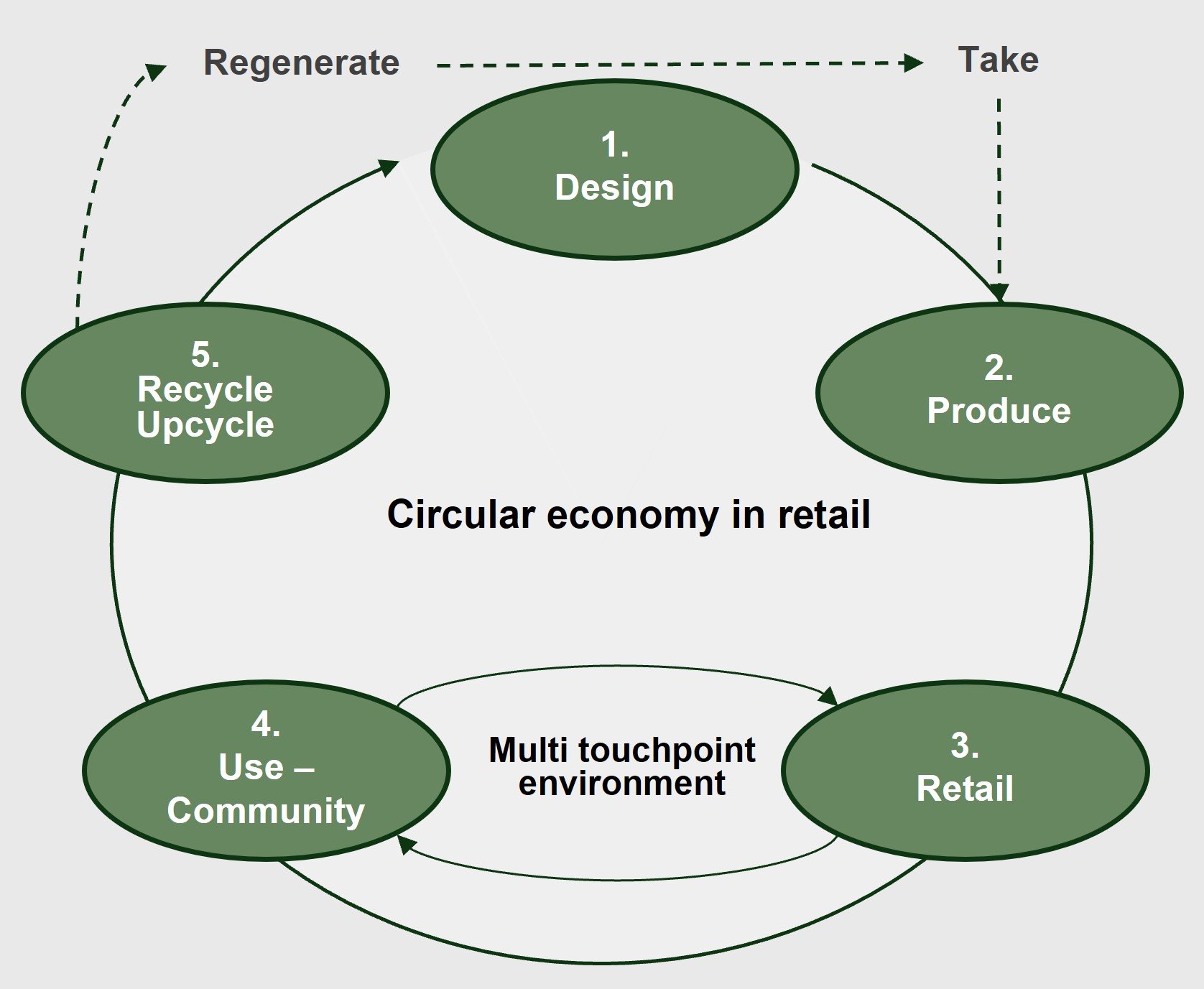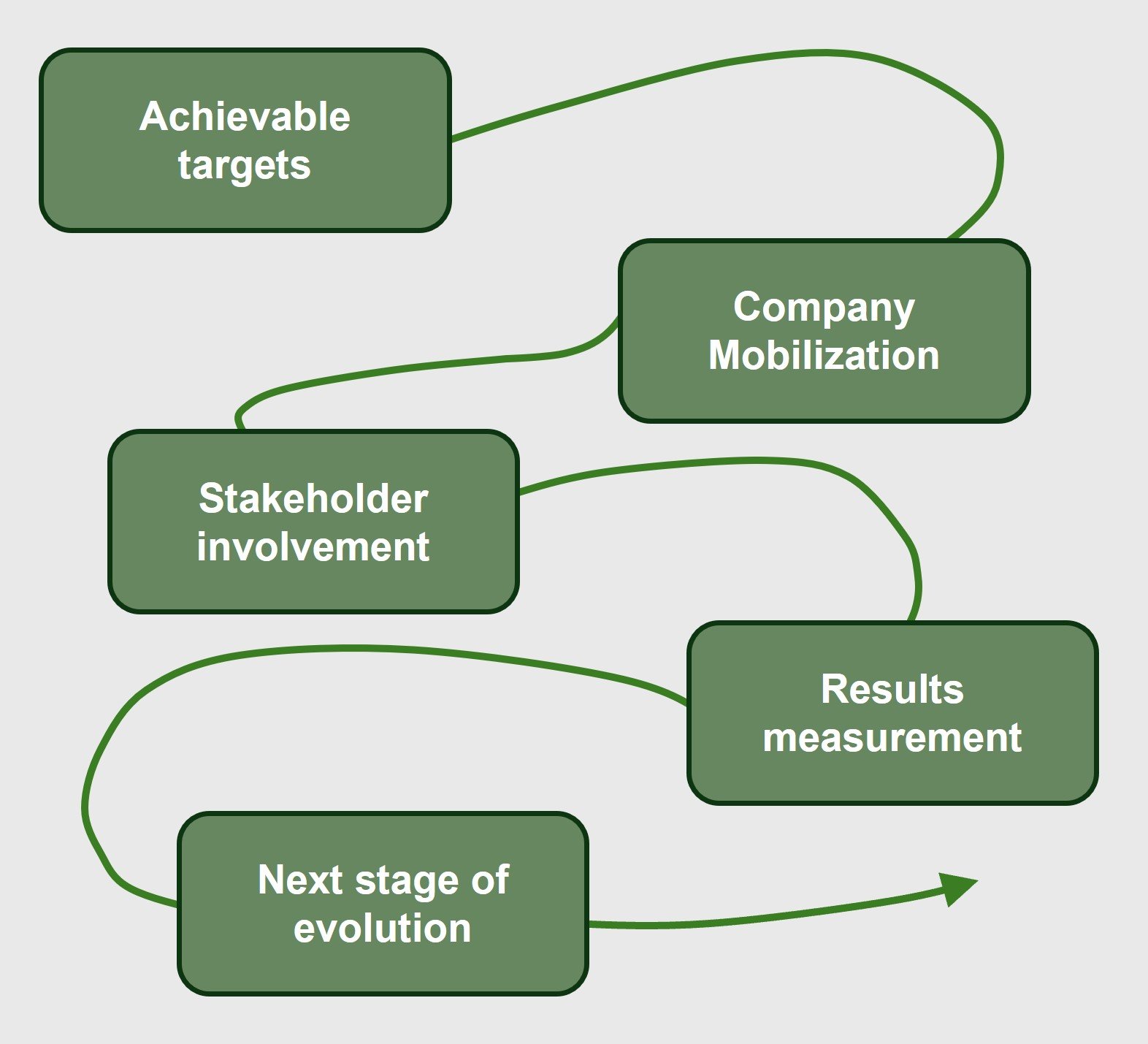The Ispira team supports brands and retailers delivering long term circular fashion strategy to achieve corporate, financial, brand image, customer benefits
Sustainability has rapidly reached top priority in the fashion industry and is expected to determine systemic transformation in the near future. Four simultaneous driving forces are accelerating change:
• Consumer demand: brand and shopping choices are increasingly driven by sustainability
• New regulations: will enforce radical reshape the fashion and retail industries
• Ethics: build a better future and protect next generations
• Technology: tech evolution habilitates most of circular fashion stages
Our Circular Fashion Holistic approach aims to drastically reduce consumption of raw material and environmental impact of production, to extend product lifecycle, to almost eliminate waste and incineration. To achieve the targets that most retailers have identified, 5 key stages should be on place:
1. Design - Products need to be conceived, developed, manufactured within the circular fashion strategy. Longer lifecycle, sustainable, recycled fabrics, fully traceable, ready to sustain resale and rent, easy to recycle
2. Produce - Full control of the manufacturing process including raw material, yarns and threads, fabrics, trims, final assembly, distribution. Control of environmental impact at every stage linked with full traceability of all stages
3. Retail - Increased number of interactions with customer. Beyond first-hand products, growing types of transactions are represented by subscription, resale, rent, repair, on-demand. Reverse logistics critical to empower most of them
4. Use - Community - Growing interactions with retail and among customers. Priority to higher product quality, product care, repair to extend lifecycle. Expansion of sharing economy will boost secondhand and rent evolving the principles of product ownership
5. Recycle-Upcycle - In product design, improved AI planning reduce excess of merchandise. In post-customer phase, full control of the recycling principles to maximize fiber-to-fiber re-use. Technology allows process monitoring and effectiveness
Download our Circular Fashion Model White Paper
Adoption of Circular Fashion requires a validated long-term strategy and a change management program handling company values, business objectives, stakeholder involvement, customer perspective and opinion, multiple simultaneous projects.
The Ispira team supports brands and retailers delivering circular fashion strategy to achieve corporate, financial, brand image, customer benefits. We convert long-term sustainability objectives into achievable, workable initiatives:
• Achievable targets: Define objectives through priority impact matrix; Company Mobilization Overall change management program organized by sequential achievements
• Company Mobilization: Bring Circular Fashion on top of company priorities; Define project team and cross functional processes; Approve work program , milestones, deliverable
• Stakeholder involvement: Adopt a transparent approach with suppliers, local communities, partners; Create integrated project teams to deliver individual targets; Identify partnership, collaborations, available tech implementation
• Results measurement: Monitor progress of each initiatives through measurable KPIs; Quick reaction, consolidation of results; External communication of achieved progress
• Next stage of evolution: Implement new process, activate partnerships; Update Portfolio Management in light of results; Activate following project
Contact us on info@ispira.com for on initial discussion on how Ispira’s experience with leading international brands and retailers can support the implementation of your successful Circular Fashion strategy


